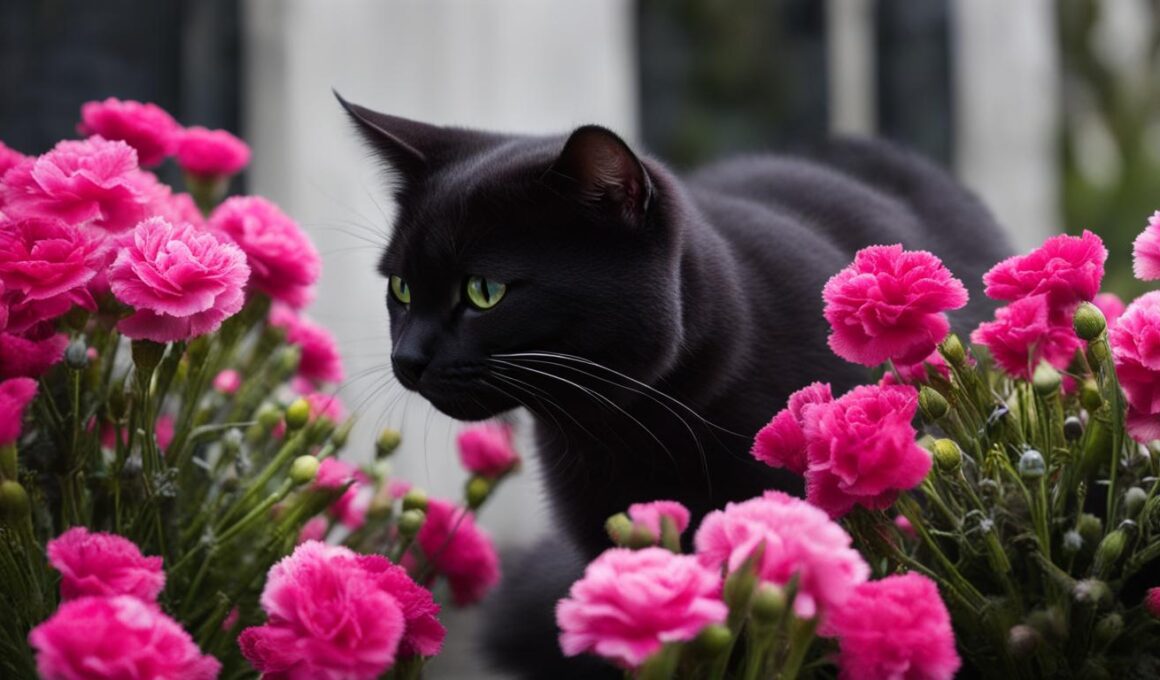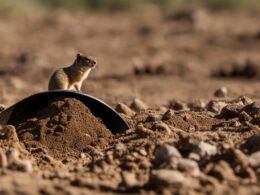In this article, we will explore the potential toxicity of carnations to cats and provide essential pet safety tips. While carnations may be a popular choice for bouquets and floral arrangements, it is crucial to understand the potential risks they pose to our feline companions.
Carnations, scientifically known as Dianthus caryophyllus, can be found in various shades of pink and are native to Europe, Northern Africa, and parts of North America. Although they are not highly toxic to cats, it is important to note that ingesting any part of the carnation plant can cause mild gastrointestinal upset, including vomiting and diarrhea.
The main concern lies in the triterpenoid saponins present in carnations, which can also cause dermatitis when the sap comes into contact with the skin. While feline carnation poisoning is not typically fatal, it is essential to take any ingestion seriously to avoid potential health issues for your beloved cat.
In the next sections, we will delve deeper into the potential dangers of cats consuming carnations, signs of carnation poisoning to watch for, and ways to prioritize your cat’s safety. By understanding the risks associated with carnations and following proper pet safety measures, you can ensure a happy and healthy environment for your feline companion.
Can Cats Eat Carnations?
Cats should not eat carnations. While the toxicity of carnations to cats is considered mild, it can still cause gastrointestinal upset and skin irritation. Consuming any part of the carnation plant can lead to symptoms such as vomiting, diarrhea, drooling, and contact dermatitis.
It is best to keep carnations out of reach of cats and opt for pet-safe floral alternatives. There are plenty of other beautiful flowers that are safe for cats to be around and won’t pose any risks to their health.
- Some safe alternatives to carnations include:
- Roses
- Orchids
- Sunflowers
- Marigolds
These flowers not only add beauty to your home but also provide a safe environment for your furry friends. If you’re unsure about the safety of any specific flowers, consult with your veterinarian.
Signs of Carnation Poisoning in Cats
If a cat ingests carnations, there are several signs of carnation poisoning to watch for. Drooling may be the first indication of mouth irritation. Vomiting and diarrhea are common symptoms as the cat’s body tries to expel the toxins. Cats may also experience skin irritation or contact dermatitis if they come into contact with the sap of the carnation plant. Other signs may include abdominal discomfort, gastrointestinal distress, meowing, whining, or vocalizations to seek comfort. If your cat exhibits any of these symptoms after being near or consuming carnations, it is important to seek veterinary attention.
Should I Worry About My Cat Being Exposed to Carnations While I’m Mowing the Lawn with My Dog?
It is important to be cautious when mowing lawns with pets, as certain plants like carnations can be toxic to cats. Keep your cat away from the area while mowing and dispose of any clippings promptly. Monitor your pets for any signs of illness or ingestion of potentially harmful plants.
Conclusion
Carnations are mildly toxic to cats and can cause gastrointestinal upset and skin irritation. Although ingestion of carnations is typically not fatal, it is important to keep these flowers away from cats to prevent potential health issues. Instead, opt for pet-friendly plants that can be safely enjoyed in the presence of your feline companion.
If you suspect that your cat has ingested carnations or any other toxic plant, it is crucial to consult with a veterinarian for proper diagnosis and treatment. Your cat’s safety and well-being should always be prioritized, and seeking professional veterinary advice is the best course of action.
Remember, there are plenty of alternative options to brighten up your space without endangering your cat. By being proactive in ensuring a cat-friendly environment and exercising caution when introducing new plants, you can create a safe and enjoyable living space for both you and your beloved feline friend.









